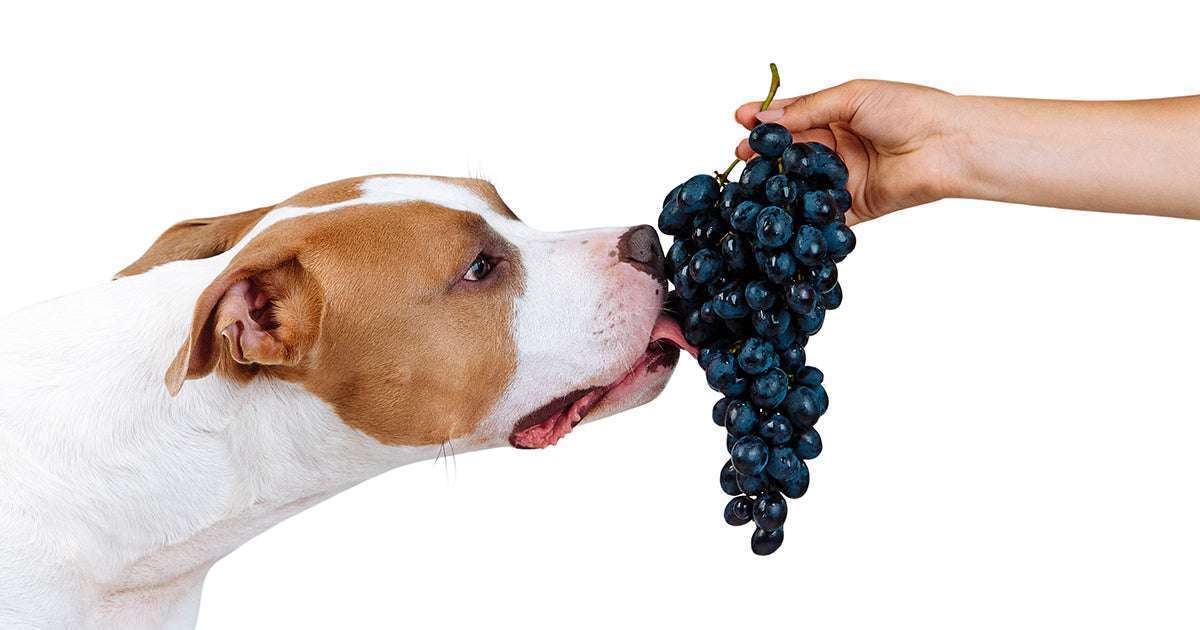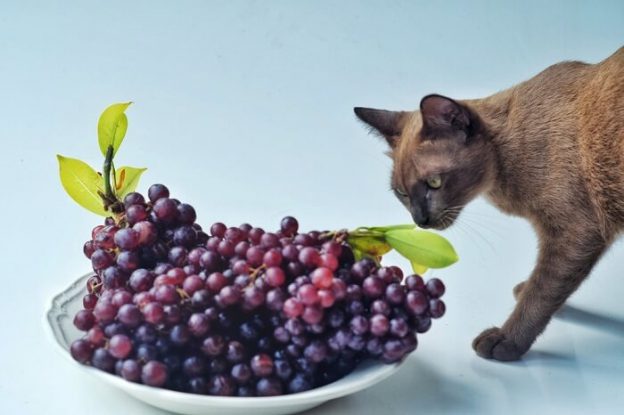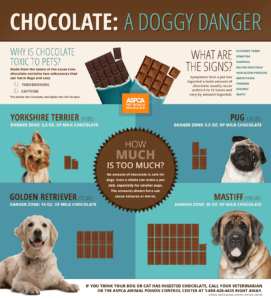Key Takeaways:
- Chocolate is toxic to pets and can cause symptoms such as vomiting, diarrhea, and even seizures.
- Grapes and raisins can lead to kidney failure in dogs, so it's important to keep them away from your furry friends.
- Xylitol, a common sweetener found in gum and candy, can be deadly for pets by causing a rapid release of insulin and dropping their blood sugar levels dangerously low.
- Onions and garlic contain compounds that can damage a pet's red blood cells, leading to anemia. It's best to avoid feeding them to your pets altogether.
- Alcohol is extremely dangerous for pets as it can cause intoxication, liver damage, or even death. Keep all alcoholic beverages securely stored away from your pets' reach.
Are you a pet owner who loves to cook and bake delicious treats? If so, it's important to be aware of the foods in your pantry that may actually be harmful to your furry friends. While some human foods are safe for pets, there are several common items that can cause serious health issues or even be toxic to them. By understanding which foods to avoid giving your pets, you can ensure their safety and well-being. In this article, we will explore seven everyday pantry staples that might seem harmless but pose a threat to your beloved pets. So let's dive in and discover how we can keep our furry companions safe from potential dangers lurking in our kitchens!
Why should we be careful about the food we give to our pets?
When it comes to our furry friends, it's essential to be cautious about the food we give them. Just like humans, pets can have different dietary needs and sensitivities. Feeding them the wrong food can lead to various health problems and discomfort.
Some foods that are safe for us may be toxic or harmful to our pets. For example, chocolate contains a substance called theobromine that dogs cannot digest properly, causing symptoms like vomiting, diarrhea, and even seizures. Onions and garlic can damage a pet's red blood cells and lead to anemia.
The Importance of Pet-Friendly Foods
Pet-friendly foods are specially formulated to meet the nutritional needs of our furry companions. These foods contain all the necessary vitamins, minerals, and nutrients that help keep our pets healthy and active. They are designed to be easily digestible for animals and often come in flavors they love.
Choosing pet-friendly foods also helps prevent obesity in our pets. Just like humans, overeating or consuming unhealthy foods can lead to weight gain and related health issues such as diabetes or joint problems.
Tips for Choosing Pet-Friendly Foods
- Read the labels: Look for pet foods that are labeled as "complete" or "balanced." This ensures that they contain all the necessary nutrients your pet needs.
- Avoid artificial additives: Try to choose foods without artificial colors, flavors, or preservatives. Natural ingredients are generally better for your pet's health.
- Consider your pet's age and size: Puppies have different nutritional needs than adult dogs, just like kittens have different needs than adult cats. Choose a food formula appropriate for your pet's life stage.
- Consult with a veterinarian: If you're unsure about which pet food to choose, it's always a good idea to consult with your veterinarian. They can provide personalized recommendations based on your pet's specific needs.
Common pantry foods that can harm our furry friends
While some human foods are safe for pets, there are several common pantry items that can be harmful or toxic to them. It's important to be aware of these foods and keep them out of reach from our furry friends.
Grapes and raisins, for example, can cause kidney failure in dogs. Avocados contain a substance called persin that is toxic to many animals, including dogs and cats. Xylitol, an artificial sweetener found in many sugar-free products like gum and candy, can cause a sudden drop in blood sugar levels in dogs and lead to liver failure.
Foods to Keep Away from Pets
- Chocolate: Contains theobromine, which is toxic to dogs.
- Onions and garlic: Can damage red blood cells and lead to anemia.
- Grapes and raisins: Can cause kidney failure in dogs.
- Avocado: Contains persin, which is toxic to many animals.
- Xylitol: Artificial sweetener found in sugar-free products that can cause low blood sugar levels and liver failure in dogs.
The Dangers of Pantry Foods for Pets
Pantry foods may seem harmless to us, but they can pose serious risks to our pets' health. Some of these foods contain substances that animals cannot process or tolerate. Others may cause allergic reactions or digestive issues in our furry friends.
It's crucial to be extra cautious and keep pantry foods stored securely to prevent accidental ingestion by pets. Even small amounts of certain foods can have detrimental effects on their health.
How certain foods can affect the health of our pets
Dangerous Foods for Pets
Certain foods that are safe for humans can be toxic to pets. For example, chocolate contains a substance called theobromine, which can cause vomiting, diarrhea, rapid breathing, and even seizures in dogs and cats. Grapes and raisins can also be harmful to pets, causing kidney failure. Onions and garlic contain compounds that can damage red blood cells in cats and dogs. Other dangerous foods include avocados, alcohol, caffeine, and xylitol (a sugar substitute found in many products). It's important to keep these foods out of reach of our furry friends to prevent any accidental ingestion.
Healthy Foods for Pets
While there are many foods that are unsafe for pets, there are also plenty of healthy options that can benefit their overall health. Lean meats like chicken or turkey provide essential protein for muscle growth and repair. Fruits such as apples and blueberries are packed with vitamins and antioxidants that support a strong immune system. Vegetables like carrots and green beans offer fiber and nutrients without adding unnecessary calories. It's important to introduce new foods slowly into your pet's diet to avoid any digestive upset.
Signs that show a pet has eaten something unsafe from the pantry
Gastrointestinal Symptoms
When a pet consumes something unsafe from the pantry, they may experience various gastrointestinal symptoms. These can include vomiting, diarrhea, abdominal pain or discomfort, excessive drooling, or loss of appetite. If you notice any sudden changes in your pet's bathroom habits or behavior after they have had access to the pantry, it could be an indication that they have ingested something harmful.
Behavioral Changes
In addition to gastrointestinal symptoms, pets may also exhibit behavioral changes if they have eaten something unsafe from the pantry. They may become lethargic, restless, or exhibit signs of discomfort. Some pets may also show signs of anxiety or restlessness, pacing or whining. If you notice any unusual behavior in your pet after they have been near the pantry, it's important to monitor them closely and seek veterinary attention if necessary.
Safe and alternative treats for pets found in the pantry
Peanut Butter
Peanut butter is a popular treat for many pets and can be found in most pantries. It's important to choose a peanut butter that does not contain xylitol, as this sweetener can be toxic to dogs. Natural peanut butter without added sugars or salt is a safe option. You can use peanut butter as a filling for puzzle toys or freeze it into homemade treats.
Cooked Sweet Potatoes
Sweet potatoes are a nutritious and tasty treat for pets. They are rich in vitamins A and C, fiber, and antioxidants. Simply bake or steam sweet potatoes until they are soft and mash them up before serving them to your pet. You can mix them with their regular food or offer them as a standalone treat.
Steps to take if your pet eats something harmful from the pantry
Contact Your Veterinarian
If you suspect that your pet has ingested something harmful from the pantry, it's crucial to contact your veterinarian immediately. They will be able to provide guidance based on the specific situation and advise whether immediate medical attention is required.
Do Not Induce Vomiting Without Professional Advice
While inducing vomiting may be appropriate in some cases of ingestion, it should never be done without professional advice. Certain substances can cause more harm if vomited back up or may require specific treatments instead.
Bring the Packaging or Ingredient List
When seeking veterinary assistance, it's helpful to bring the packaging or ingredient list of the potentially harmful substance. This information can aid in determining the best course of action and potential treatment options.
Remember, prevention is always better than cure. Keeping harmful foods out of reach and providing safe alternatives will help ensure your pet's well-being.
In conclusion, it is important to be aware of the common foods in our pantry that can be harmful to our pets. By keeping these items out of reach and opting for pet-friendly alternatives, we can ensure their safety and well-being.
https://www.youtube.com/watch?v=Vsj_amg0v_g&pp=ygU9NyBDb21tb24gRm9vZHMgSW4gWW91ciBQYW50cnkgVGhhdCBBcmUgTm90IFNhZmUgRm9yIFlvdXIgUGV0cw%3D%3D
What are 13 human foods toxic to dogs?
There are several common foods that are dangerous for dogs to consume and could potentially be fatal. These include grapes, raisins, avocados, chocolate, xylitol (an artificial sweetener), fruit pits and seeds (such as apple cores and plums), onion, garlic, macadamia nuts, raw eggs, alcohol, caffeine, bread dough, liver, raw fish, milk, and cheese.
What meat should dogs not eat?
Food items such as Chicken & Turkey Skin, Ham, and other fatty cuts of meat have a high concentration of fat. Consuming these items can lead to the development of acute pancreatitis, a dangerous illness with serious complications. It is also important to avoid feeding dogs turkey bones as they can cause severe indigestion or vomiting.
Can dogs have cheese?
Cheese can be given as an occasional treat in small quantities as part of a balanced diet for dogs. If a dog consumes a large amount of cheese, they may experience vomiting. It is important to monitor their condition and seek advice from a veterinarian if they show signs of illness.
What is most harmful to dogs?
Ethylene glycol, which is commonly found in antifreeze, is highly poisonous for dogs. It has a sweet taste, which makes dogs more likely to consume it. Even a small amount of 2 1/2 tablespoons can be lethal for a medium-sized dog within a span of 2-3 days. This kind of poisoning is usually fatal because dog owners are often unaware that their pet has ingested antifreeze.
What veggies are bad for dogs?
Garlic, onions, shallots, and chives are vegetables that are not safe for dogs to consume. Whether raw or cooked, these vegetables can be toxic to dogs and may cause anemia and damage to their red blood cells. Symptoms of illness may not appear until several days after ingestion.
Is popcorn bad for dogs?
In moderation, plain, air-popped popcorn is considered safe for dogs to consume. However, popcorn that is buttered or has other toppings is not recommended for regular consumption by dogs. It is unlikely to harm them if they eat a few stray pieces occasionally.
















